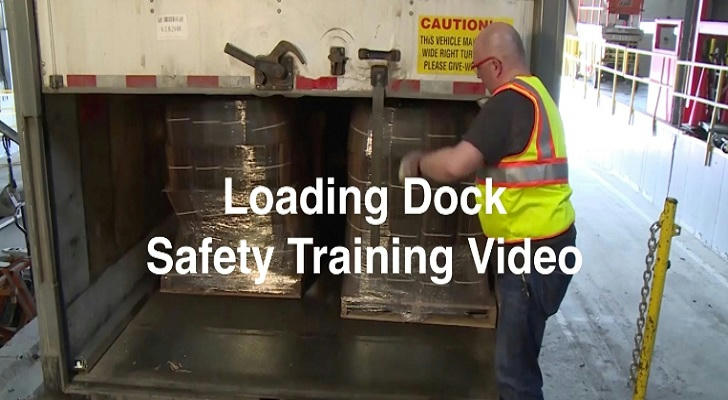Comprehensive Guide to Government-Supported Dock Worker Training in the USA ⚓💼
The maritime and port industry plays a crucial role in global trade, offering stable, well-paying careers for dock workers. Proper training is essential to ensure safety, efficiency, and career growth in this field. This guide covers everything you need to know about dock worker training in the USA, including basic and specialized training, certifications, union programs, and career advancement opportunities. 🚢💪

🏛️ Government-Supported Training Programs
Many dock worker training programs are supported by government initiatives to promote workforce development. Programs such as the Workforce Innovation and Opportunity Act (WIOA) and state-supported maritime training programs provide financial assistance, tuition waivers, and stipends for qualified individuals.
Participants in government-supported training can access:
Tuition-Reimbursement or Low-Cost Training 🎓 – Funding covers safety courses, equipment certifications, and apprenticeships.
Paid Apprenticeships 💰 – Some state programs offer stipends for trainees during on-the-job training.
Job Placement Assistance 📈 – Government-supported initiatives help connect workers with employers at major ports.
🏗️ Basic Training
✅ Safety Training
Dock workers must comply with OSHA (Occupational Safety and Health Administration) regulations to ensure a safe working environment. Training covers:
Proper Heavy Lifting Techniques – Avoid workplace injuries by using correct lifting methods.
Workplace Hazard Prevention – Identify and mitigate risks in a high-traffic port environment.
Protective Equipment Usage – Learn how to properly use helmets, gloves, and safety vests to prevent accidents.
✅ Equipment Operation
If a dock worker’s job involves operating heavy machinery, additional training is required. Common equipment includes:
Cranes 🏗️ – Learn to operate container cranes safely and efficiently.
Forklifts 🚜 – Certification for loading and unloading cargo with forklifts.
Conveyor Belts & Port Machinery ⚙️ – Training on automated cargo handling systems.
🔧 Specialized Skills Training
⚓ Ship Maintenance & Repair
Workers involved in ship repair and maintenance may need additional technical training in:
Welding & Fabrication 🔩 – For hull repairs and structural reinforcements.
Electrical Systems ⚡ – Learn to maintain onboard electrical systems.
Pipefitting & Plumbing 🛠️ – Handling fuel, water, and hydraulic pipes on ships.
Engine Maintenance ⚙️ – Basics of troubleshooting and repairing ship engines.
📦 Container Handling & Logistics
Automated Terminal Equipment Training – Operate advanced port automation systems.
Load Planning & Stacking Techniques – Optimize cargo space for safe transport.
Hazardous Material Handling ☣️ – Learn special handling and safety regulations for dangerous cargo.
🏛️ Union & Company Training Programs
Many dock workers join labor unions that provide training and career development opportunities.
International Longshore and Warehouse Union (ILWU) 🌎 – Represents workers on the West Coast and provides apprenticeships, equipment operation training, and safety courses.
International Longshoremen’s Association (ILA) ⚓ – Represents East Coast and Gulf Coast dock workers, offering similar training programs.
Port & Shipping Companies 🏢 – Large ports and shipping companies often provide in-house training, apprenticeships, and paid certification programs for new hires.
📜 Certifications & Licenses
Depending on the job role, dock workers may need certifications such as:
Port Operations License 🚢 – Required for certain port-based jobs.
Commercial Driver’s License (CDL) 🚛 – For workers involved in transporting cargo by truck.
Certified Welder (AWS Certification) 🔥 – If working on ship repairs and maintenance.
Crane Operator Certification (NCCCO) 🏗️ – Required to operate port cranes.
📈 Experience & Career Growth
Most dock workers start in entry-level positions and gradually advance through experience and training. Common career progression includes:
1️⃣ Entry-Level Positions 🏗️ – General cargo handling, container stacking, and safety compliance.
2️⃣ Skilled Equipment Operator 🚜 – Forklift, crane, or port vehicle operation.
3️⃣ Maintenance & Repair Technician 🛠️ – Specializing in ship or equipment repair.
4️⃣ Dock Supervisor / Terminal Manager 📊 – Overseeing operations and staff at major ports.

🌟 Benefits & Compensation
✅ Top Union Benefits
Most dock workers belong to strong labor unions that negotiate outstanding wages and benefits:
100% Covered Healthcare 🏥 – Includes medical, dental, vision, and prescription coverage.
Pension & 401(k) Plans 💰 – Secure retirement with union pension plans and employer-matching 401(k) accounts.
Paid Vacation & Sick Leave 🏖️ – Unions ensure paid time off, family leave, and sick days.
💰 Competitive Salaries
Dock workers earn some of the highest blue-collar wages in the U.S.
| Experience Level | Annual Salary |
|---|---|
| Entry-Level (0-5 years) | $60,000 - $80,000 💵 |
| Mid-Career (5-15 years) | $90,000 - $120,000 💰 |
| Senior-Level (15+ years) | $150,000 - $200,000+ 🚀 |
West Coast dock workers (ILWU) tend to have higher wages due to union contracts.
Skilled positions (e.g., crane operators, maintenance techs) can earn $200,000+ with overtime and bonuses.
📈 Job Stability & Growth
Consistent Demand 🚢 – Global trade ensures high demand for dock workers.
Union Contracts Protect Jobs ⚖️ – Strong contracts limit layoffs and provide job security.
Career Advancement Opportunities 🚀 – Training programs help workers climb the ranks to higher-paying roles.
🎓 No College Degree? No Problem! 🚀
Unlike many high-paying jobs, dock work does not require a college degree. Instead, workers enter the field through union apprenticeships, company training programs, or certification courses.
✅ Hands-on Training – Learn on the job while earning money 💵.
✅ Fast Career Entry – Many programs place workers in full-time roles within months.
✅ Long-Term Stability – Ports are essential to global trade, ensuring long-term job demand.
⚓ Start Your Dock Worker Career Today!
A career as a dock worker offers high pay, job security, and career advancement with minimal education requirements. Whether you're interested in cargo handling, equipment operation, or ship maintenance, there are training programs available to help you succeed. 🚢💼
👉 Take the first step toward a rewarding maritime career—apply today!
For more information, visit International Longshore and Warehouse Union (ILWU)
